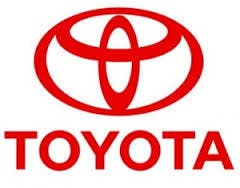Despite a terrible end to the week, Japan’s NIKKEI 225 (INDEXNIKKEI:NI225) stock index managed to pull in small gains during the past five days. It’s the latest gain in what’s been a 31% year-to-date jump in the world’s hottest index, but Japan’s strong year has slowed recently. As the government looks to keep its unprecedented stimulus on track, tensions between Tokyo and rival Beijing are heating up in the Pacific.
Is the Pacific rivalry setting up the perfect storm for defense contractors in traditionally pacifist post-World War II Japan?
Japan and China square off
Japan and China have rolled out the big guns recently — or big ships, to be precise. The dispute between the two countries over the Senkaku Island chain has inflamed tensions between the governments and citizenries, resulting in an economic backlash. Auto giant Toyota Motor Corporation (ADR) (NYSE:TM) has certainly felt the effects, with its sales falling 3.5% year over year in China’s market in July. The drop has forced Toyota behind European and American rivals in the world’s largest auto market, and it has leading Japanese exporters and their investors worried about what the future in China holds.

For a company like U.S. defense titan Lockheed Martin Corporation (NYSE:LMT), the opportunity’s something to watch. Japanese prime minister Shinzo Abe’s government has looked to bolster its domestic defense industry by partnering with foreign firms, and Lockheed’s expensive F-35 fighter is one of the top priorities for Japan’s Air Self-Defense Force’s future. The craft is still dominated by planned future U.S. sales, but Japan’s rising acceptance of a strong military could mean growing sales in the future.
Which other companies could benefit from a long-term Pacific standoff between the continent’s two largest economies? Missile and electronics manufacturer Raytheon Company (NYSE:RTN) is hoping to turn to Japan for future suppliers as the country considers nixing its half-century ban on arms exports. Japan currently utilizes only around 1% of its GDP for defense spending, far less than the likes of the U.S., but Raytheon already has ties to the country’s defense sector.
Raytheon Company (NYSE:RTN) co-developed its SM-3 surface-to-air missile with Japan’s Mitsubishi Heavy Industries, and the missile plays an important part of the country’s defense against the likes of North Korea’s aggressive missile tests, and China’s growing air power, which has only increased with the deployment of fifth-generation fighters like the ballyhooed J-20 stealth interceptor.
Considering Japanese sentiment for a strong military is picking up, and the threat of China’s resurgent military won’t disappear any time soon, the tension between these two regional powers could be just the opportunity defense firms need as America’s industry takes a hit from sequestration.
The article Is Japan the Defense Industry’s Next Hot Spot? originally appeared on Fool.com.
Fool contributor Dan Carroll has no position in any stocks mentioned. The Motley Fool owns shares of Lockheed Martin and Raytheon Company.
Copyright © 1995 – 2013 The Motley Fool, LLC. All rights reserved. The Motley Fool has a disclosure policy.





